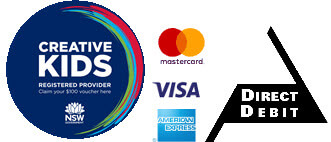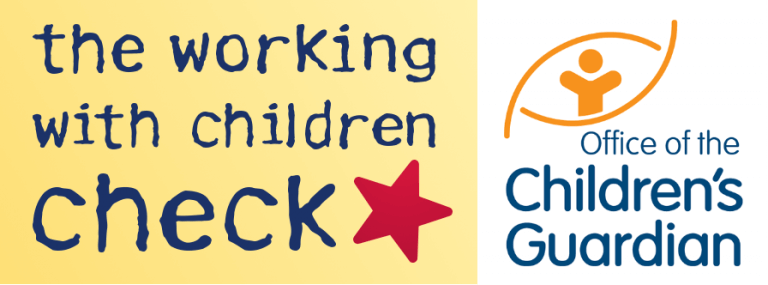I love living in Australia. I don’t think there is another country that has so much honesty, work ethic, and especially an incredible medical system. However, after moving to Wollongong, I noticed the difference in the standard of teaching here with the majority of music teachers and schools compared to other locations like Europe.
Here are my top 10 experiences I have come across and my recommendations for teachers to improve, and for students to understand their teachers and their music schools better.
1. If you cannot hear all the notes of what your student (or yourself as a teacher) is singing, or cannot at least work out what they are immediately, don’t teach singing
This goes without saying. Vocal coaches that cannot hear the note that the student is singing or should sing should consider another profession. The issue here is – how can a teacher know if they hear all the notes when you don’t know what you don’t know? As a teacher, have a mentor better than you to help determine this. Don’t be afraid to know your weaknesses. You can only help your students best when you know your limits. If you are teaching, I assume your goal is for your students to grow. This goes for yourself as well. Never stop learning.
I hear you say – but it doesn’t matter if they are beginner students right?
Wrong. You are slowing their development down and you won’t be able to progress them and help them reach their goals as fast as is possible. This is important because they are investing time and money.
The more knowledge you have, the more you can look forward and better plan your student’s development path.

As a student, how do I know this about my teacher?
Unfortunately you can’t know. It’s like taking your car to a car mechanic and they don’t pick up a problem. You most likely don’t have the time to learn how to service your own car, so all you can do is take it to another mechanic.
Learn the same song with different singing teachers. That is the only way you will be able to get a feeling over time on how you are progressing depending on the teacher.
2. If you cannot help a student, pass them on to someone who can
Music is a large field. Not one person has all the skills. This is where ‘hire someone better than you to be on your team’ is key. Otherwise pass them on to someone else. Don’t hold on to any student if there is stagnation – even if you are doing all you feel you can possible and they are still not progressing.
There are students that have been with the same teacher for 7 (yes seven) years and have not progressed. If you are singing in the same town with the same teacher in the same environment for 7 years (or even 3 years) and you haven’t progressed with your goals.. something is wrong. As a person, you should be significantly different every few years with regards with your skill sets. Not 5% different. 500% different. If you are not – get learning, change the environment you are in and/or the people you are around.
If you are teaching singing and your student is not improving, then it may be time to pass them on to someone else. It may be that they need a different level of inspiration, a different ability level, or you do not have the skillset required to take them to the next level.
Not everyone can teach beginners, and not everyone can teach high calibre students. Understand your boundaries and either employ someone else that surpasses you or pass them on to someone else who can.

As a student, how do I know if I have reached a level of stagnation with my teacher?
If as a student you are no longer interested, it could be that you just want to move on to something else.
If you are interested but feel you are not progressing, you must first determine if it is because you are not spending enough time, you are impatient and expect results faster than is possible for you and do not want to learn the basics first, or you do not practice efficiently. Doing the same thing and not getting any better means something is wrong somewhere.
I have had a students who wanted to jump in and learn a piece that was too difficult for their level. Basically the piece this 12 year old student wanted to play required at least 3-5 years of experience – not a beginner.
They needed to take many steps back and work on the basics and also perform the finger exercises to allow her to play the piece correctly. I wanted to create a simpler version of that piece for this student. She refused, and her mother refused and insisted that the hard piece is what this beginner 12 year old wanted to learn. Therefore I created a daily detailed set of exercises the child must do to develop the finger dexterity to play that piece.
Did she do it? No.
You have to work hard to deserve to play difficult pieces.
3. Learn transposition
This doesn’t even need any explaining. This is the number 1 problem I see with the majority of vocal teachers. You can ruin a student’s voice by not transposing. You can also ruin a performance. Do not negatively impact your students because of your ignorance or lack of skillset. They have come to you for guidance and pay for your time. Learn this skill.
As a student, how do I know that my teacher is not transposing?
 I had a student that had 3 terms with a school in the local area. He was told that he had to sing the song in G. The problem with this was that the teacher picked this key because it must have been easier for her to play the piano. This key did not match the student’s vocal range either. To me, this was a waste of time and money because of the ignorance of the teacher. This is not fair on the student. Students pay money and spend their time with you to be taught and improve.
I had a student that had 3 terms with a school in the local area. He was told that he had to sing the song in G. The problem with this was that the teacher picked this key because it must have been easier for her to play the piano. This key did not match the student’s vocal range either. To me, this was a waste of time and money because of the ignorance of the teacher. This is not fair on the student. Students pay money and spend their time with you to be taught and improve.
So how do you know? If you are struggling to sing a song in the high or low range, then that is a red flag. Full stop.
4. Show your student’s strengths. If they are not ready to sing in public, don’t encourage them to
Putting students to perform before they are ready isn’t fair. Singing and performing should be a confidence builder and their progress over time should be evident.
Even beginners have strengths in some area. Find out how to show their strengths properly. Do not just throw someone on stage with a backing track before they are ready. Your students deserve more than this. Put effort in to understand what you can do to make this student shine, regardless of their level.
I have seen so many examples (they are not hard to google) of students that have been put in embarrassing situations that make you cringe, and the video has been posted on Facebook and YouTube. Why you would do that to a student, I have no idea. Cultivate confidence.
As a student, how do I know if I’m not ready to perform?
This is difficult to answer if everyone around you is telling you how great you are because they don’t want to be honest. Don’t ask anyone else. Record yourself and listen to yourself. This may also be difficult.
I had a lady that said she had a recording label after her, and a producer lined up. She wanted my opinon but expressed that she wasn’t after flattery. She said she was after someone that would be ‘honest’ like Simon Cowell. I thought what she was really after was someone to be honest (without being rude) and point out everywhere she needed improvement so she could have some constructive feedback and some action items to move forward.
During the session, I actually stopped pointing all the things out that she needed improving on because I could see her confidence decreasing with everything I pointed out. I told her in the end to stop singing and focus on simple exercises to get her back on track. Of course I never saw her again. I found this situation extremely awkward because everyone around her was giving her inflated confidence.
As a student, ask your teacher to be honest and blunt, however take this on board and take action to improve on the feedback. Don’t let it immobilise you.
5. Don’t take someone’s money if you can’t teach them
I’m sure you have seen it – a teacher advertising that they have AMEB L8, HSC in music or performance, and maybe a few other things.
Generally, to teach a skill, you must have studied at a much higher level than what you have achieved. If you have passed AMEB L8, this does not mean that you can teach piano. There are 6 year olds that have AMEB L8. Teaching piano requires much more than passing a few exams. This is a separate article in itself.
Yes this also means you should not teach beginners, or have them longer than a few lessons.
6. Don’t teach your students to perform for ‘exposure’
Please do not EVER teach your students that this is ok. By the way, playing for charity is something different to playing for ‘exposure’ or to ‘have an opportunity at an open mic night to network’ around a set of people that are all trying to make it.
Playing for exposure means what exactly? It means dedicating your time to play for the purpose of getting other people to hear you. There is nothing about making money or getting discovered here. You are playing the musician lottery here.

What else should you do? Invest in yourself so you can play in places and for people who appreciate your time. We are in the information age. It costs less money than ever to improve yourself thanks to the wealth of information on YouTube and the Internet.
Find a mentor to help you. Go straight to the top, or much higher than where you are now. If you don’t have a mentor – get one now. Yes it costs money, but so does your time and your aspirations. Would you rather spend 2 years of 2 hours a week networking (208 hours) around people that are in the same boat as you, or would you rather invest in yourself and get to your goals faster? If you can only afford a mentor once every 3 months, this is better than spending 25.2 hours around people that do not have the network.
Fly with the eagles when you can. They already made many mistakes that can save you years and they have a greater network that you do.
7. Don’t try and take someone else’s students
Yes this happens. In this case, the teacher of a school saw my student at a local theatre audtion and called him up to offer to teach him. Don’t just pick the fruit that looks riper so you can get credit for it with less effort. There are lots of students to teach – they will come to you themselves.
About 60% of my students come to me after moving on from their existing teacher – so there are lots of students to teach if you are offering value.
This same school had an existing student they taught for 3 terms and apparently couldn’t fit him in the last term for whatever reason.
However they had time to approach my student in an attempt to fit him in their schedule. Their student went looking for another school and started lessons with me. I’m extremely fortunate to work with him. He has a lot less experience and needs a lot more work, however if you can hear what is going on and understand what your student needs to work on, and how things have to be modified to suit a student’s voice, you will get faster progress than 3 terms of another type of teaching method.
Don’t let go of a student because they are too hard. Skill up so you can help them.
It’s extremely rewarding to get feedback from your students about how their lessons are the best part of their week, and how much their family and friends tell them that they have improved so much more than when with their previous teacher.
8. Have the patience and courage to accept students that need a lot of work
Yes it can be on one hand easier to work with someone that has a good base of musical experience or natural talent. However sometimes people with experience want to do things a certain way and you have to convince them why it is not a good idea.
If you have a student that is a complete beginner and clearly needs a lot of work or sounds extremely rough (vocal), take it as an opportunity. You have a rare untouched gem that you have the opportunity to influence to mould and improve. This person has come to you for help and this is where your expertise and hearing really counts.
You can buy a cake from the store and make the icing, or you can make the cake from scratch including the icing. Which takes the most expertise?
9. If you teach singing without knowing an instrument properly, you reduce your teaching ability by at least 90%
As a singing teacher, it is mandatory to appreciate how much it means for the student to have piano/guitar/etc accompaniment to follow them. I don’t mean simple chords in root positions. I mean you must be able to play the melody accurately.
What I see people doing is playing the chords in the root position. At that point you can’t expect from them to play the melody – so it’s time to move on.
Why can’t someone just use a backing track you ask?
They are good for performances and for practicing at home. When you are using that to learn a song with your teacher, it’s plain laziness to use a backing track. It is also an inefficient use of time during the lesson. It is much faster to be dynamic and follow your student or restart a certain line if you play an instrument than re-adjust the backing track each time.
If you use backing tracks and a student wants to sing a song in a certain style, and you cant find a backing track in that style – what will you do? You are limiting your student.
10. Charge for the value you provide your student, not what you think the market rate is
There are teachers charging $50, $60 or $70 an hour and are not able to transpose, accompany, or hear notes. I’m not sure what they are charging for. These teachers provide $20 (if you are lucky) an hour value but charge themselves out at 3 to 4 times as much.

As a student, how do I know if my teacher is providing value?
Try different teachers. One teacher might take 4 months to progress you anywhere. Another might not progress you at all. A different teacher might not have any idea how to teach you a song for your voice. Another one might progress you faster than all of them put together.
You will know. Your family and friends will tell you when they hear you. Be sure of that – especially if they know you have swapped teachers. They have something to compare against.
Bonus 11. Respect others, and the time of others
I had worked on a production a couple years ago at a theatre where the production staff were laughing at the people who came to audition. Either because these children were nervous, or having trouble singing lines. The production staff were behind me sniggering and commenting between themselves about these children – about a disability they have, or supposing they have not yet been diagnosed with a disability, and finding this funny.
This behaviour speaks for itself, and for the theatre company who continues to have these staff as resources. Birds of a feather flock together. That was the last time I donated my time to that theatre.
These people that came to audition were part of a family who not only performed for free previously at that theatre, but they also dedicated their time and money.
On the other hand, some of the children in the production at the same theatre were asked by one of the senior cast members to pay attention and learn. Their response was: “We don’t have to listen – this is a community theatre”.
There is nothing much more to say here except please respect your students, your fellow teachers and cast members, and you cannot expect to get respect if you don’t give respect and teach others how to treat you. If you don’t get respect – walk away. There are lots of doors you can open yourself – you don’t have to tolerate this type of behaviour.



